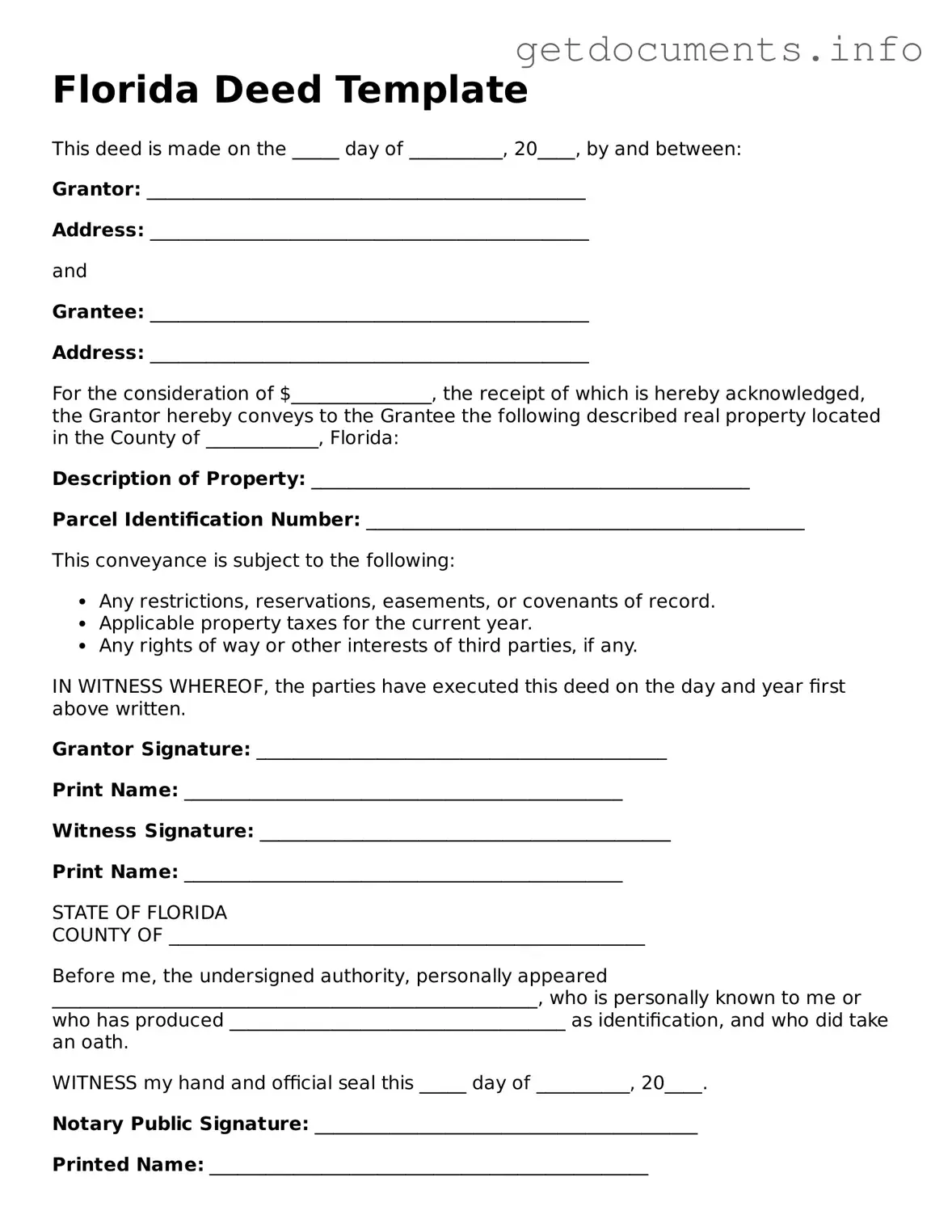Free Deed Template for Florida
A Florida Deed form is a legal document used to transfer ownership of real property in the state of Florida. This form outlines the details of the transaction, including the parties involved and the property description. To ensure a smooth transfer, consider filling out the form by clicking the button below.
Access Deed Editor

Free Deed Template for Florida
Access Deed Editor
Got places to be? Complete the form fast
Fill out Deed online and avoid printing or scanning.
Access Deed Editor
or
⇩ PDF File
